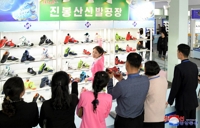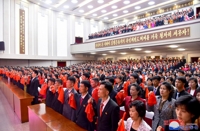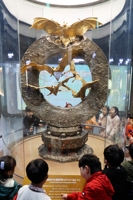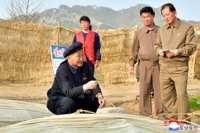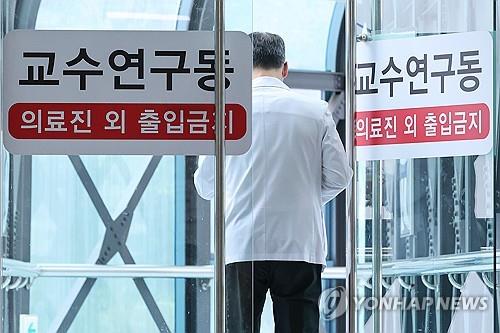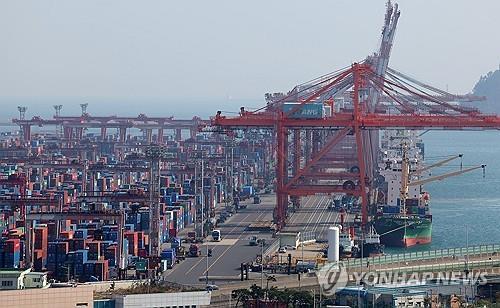(News Focus) S. Korea hopes Park's attendance for China's WWII ceremony to help resolve N. Korea's nuclear row
By Kim Kwang-tae
SEOUL, Aug. 31 (Yonhap) -- President Park Geun-hye's planned attendance to a high-profile military parade in China illustrated the extra mile South Korea has gone to secure Beijing's cooperation in resolving the dispute over North Korea's nuclear weapons program.
The huge military parade to be staged in Tiananmen Square on Thursday could be the highlight of China's celebrations of the 70th anniversary of the end of World War II.
South Korea said it has made the decision after "careful consideration by taking into account" South Korea-China relations and better management of the situation on the Korean Peninsula. The move came as Western leaders have decided to shun the event.
Park is also set to hold separate talks with Chinese President Xi Jinping and Prime Minister Li Keqiang upon her arrival in China on Wednesday.
Park's presence in Beijing will mark a clear contrast to a similar World War II ceremony in Moscow in May when she sent an envoy.
Ju Chul-ki, senior presidential secretary for foreign affairs, told reporters that South Korea expects "China to play a role in resolving North Korea's nuclear issue" and "in facilitating peace and stability and a peaceful unification of the Korean Peninsula."
China is believed to have significant leverage over North Korea, which has long been dependent on Chinese diplomatic support and economic aid. Some, however, question China's influence on North Korea.
Daniel Pinkston, a Korea expert at the International Crisis Group in Seoul, said South Korea's expectations are understandable, though he does not believe that China can meet them.
"In the case of a crisis with North Korea, China -- and everyone else for that matter -- will act in its own interest. China will do what it feels is in China's interest," Pinkston said. "Park's visit is part of an effort to try and shape or influence what China perceives to be in its national interest."
South Korea and China are on the same page when it comes to North Korea's nuclear program.
Last November, Park and Xi agreed to step up their efforts to induce North Korea to abandon its nuclear weapons programs.
"China probably will continue to pay lip service to the issue of restarting the six-party talks, but those talks are dead until there is a fundamental change in North Korea's policy orientation," Pinkston said.
North Korea has expressed its desire to return to the talks without any preconditions.
Still, North Korea has repeatedly vowed to develop its economy and nuclear arsenal in tandem, viewing its nuclear programs as a powerful deterrent against what it claims is Washington's hostile policy toward it.
South Korea and the U.S. have said that Pyongyang must first show its sincerity toward denuclearization before such talks can resume. The talks were last held in Beijing in late 2008 and they also involve China, Japan and Russia.
It remains unclear if Park's summit with Xi could provide any momentum to jump-start the nuclear talks.
Park and Xi could stress again the importance of "denuclearization of the Korean Peninsula," said Chun Ka-lim, a China expert at Hoseo University in South Korea.
entropy@yna.co.kr
(END)
-
 S. Korea marks 30th anniv. of Korean Pavilion at Venice Biennale with contemporary art
S. Korea marks 30th anniv. of Korean Pavilion at Venice Biennale with contemporary art -
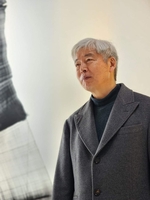 Artist Lee Bae captures ethereal Korean aesthetics at Venice Biennale
Artist Lee Bae captures ethereal Korean aesthetics at Venice Biennale -
 Ateez member Yunho throws first pitch at MLB match between Dodgers, Mets
Ateez member Yunho throws first pitch at MLB match between Dodgers, Mets -
 Gov't likely to accept university chiefs' request to lower med school enrollment quota
Gov't likely to accept university chiefs' request to lower med school enrollment quota -
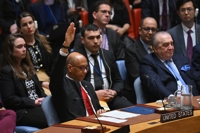 S. Korea supports resolution backing U.N. membership of Palestine
S. Korea supports resolution backing U.N. membership of Palestine
-
 Artist Lee Bae captures ethereal Korean aesthetics at Venice Biennale
Artist Lee Bae captures ethereal Korean aesthetics at Venice Biennale -
 S. Korea marks 30th anniv. of Korean Pavilion at Venice Biennale with contemporary art
S. Korea marks 30th anniv. of Korean Pavilion at Venice Biennale with contemporary art -
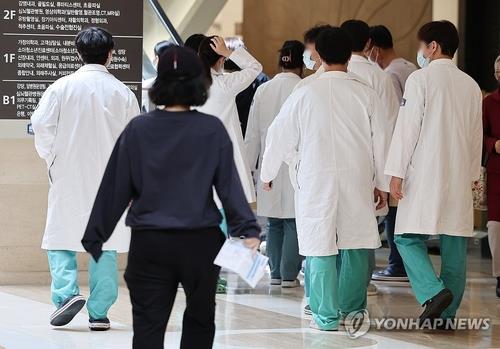 Gov't likely to accept university chiefs' request to lower med school enrollment quota
Gov't likely to accept university chiefs' request to lower med school enrollment quota -
 Looming weekly closure of major hospitals feared to worsen medical service crisis
Looming weekly closure of major hospitals feared to worsen medical service crisis -
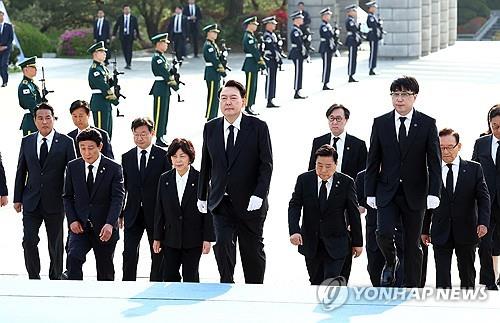 Yoon's approval rating sinks to lowest point since taking office
Yoon's approval rating sinks to lowest point since taking office
-
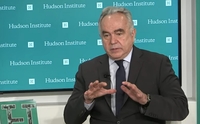 U.S. will take steps for three-way engagement on nuclear deterrence with S. Korea, Japan: Campbell
U.S. will take steps for three-way engagement on nuclear deterrence with S. Korea, Japan: Campbell -
 (LEAD) Hybe to file complaint against sublabel executives over internal conflict
(LEAD) Hybe to file complaint against sublabel executives over internal conflict -
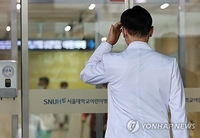 Looming weekly closure of major hospitals feared to worsen medical service crisis
Looming weekly closure of major hospitals feared to worsen medical service crisis -
 Author of ADOR's 'internal document' refutes allegations of spinoff plot
Author of ADOR's 'internal document' refutes allegations of spinoff plot -
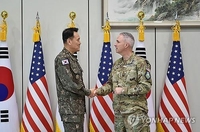 U.S. SPACECOM commander says N.K.'s satellite launch violates U.N. resolutions
U.S. SPACECOM commander says N.K.'s satellite launch violates U.N. resolutions















